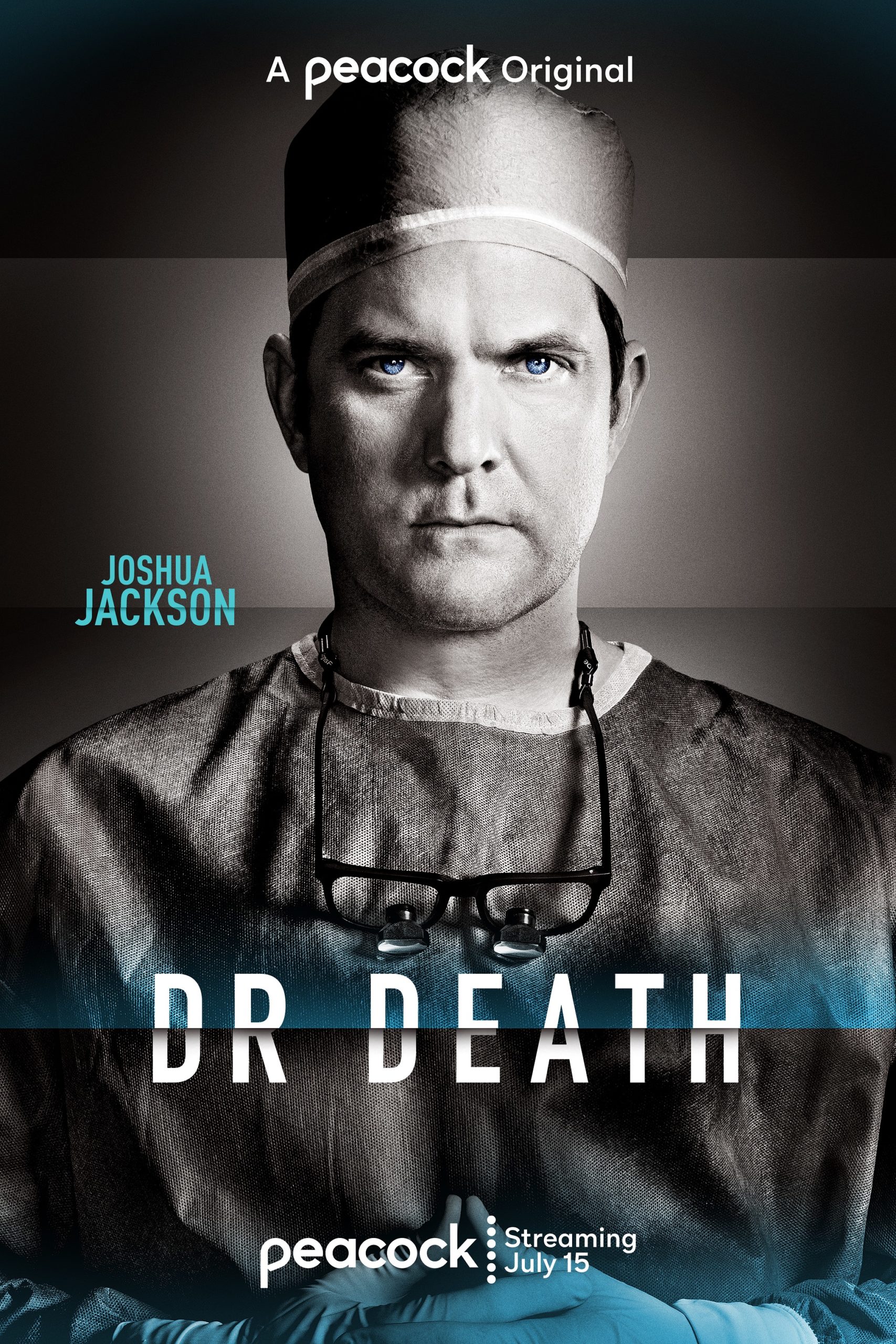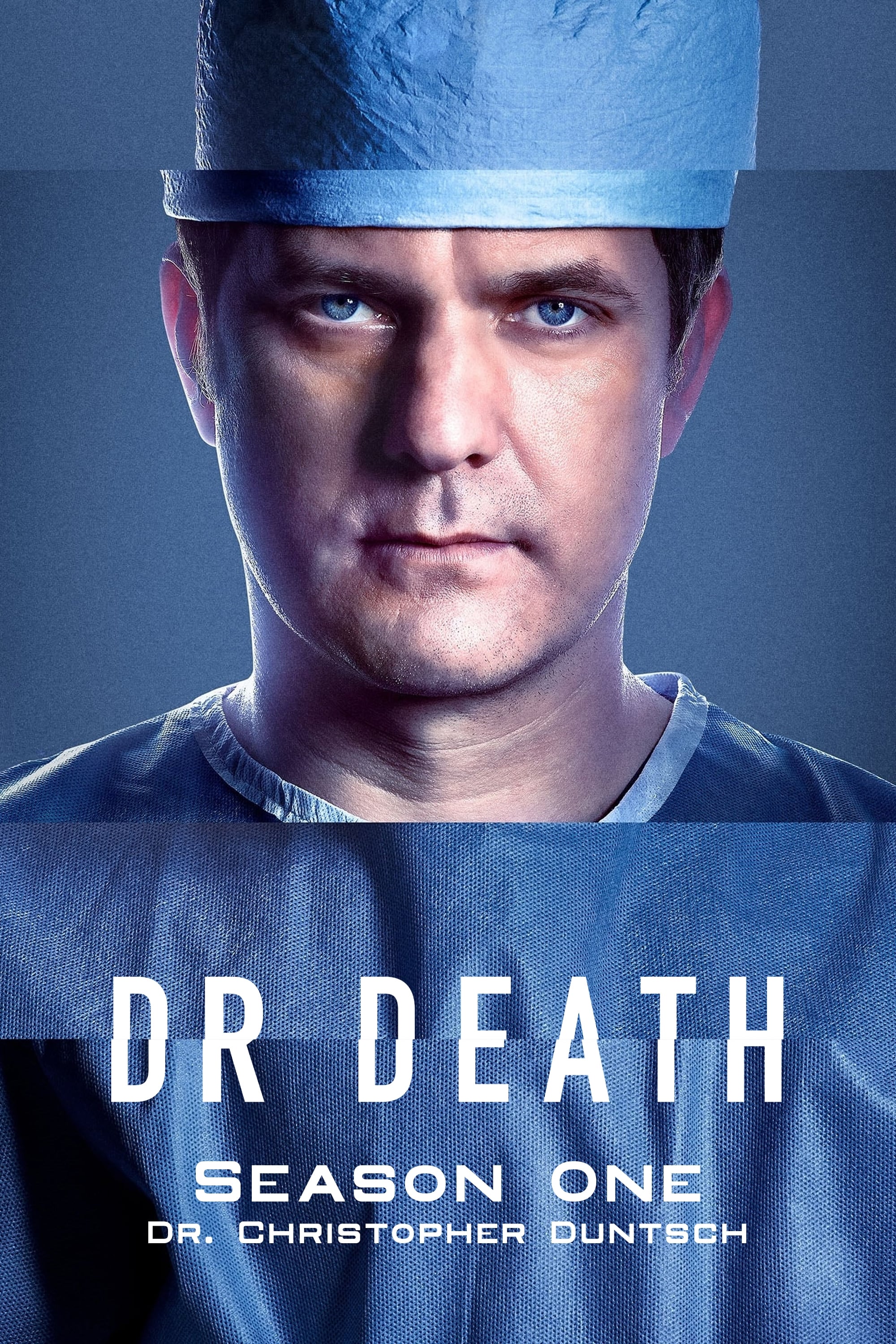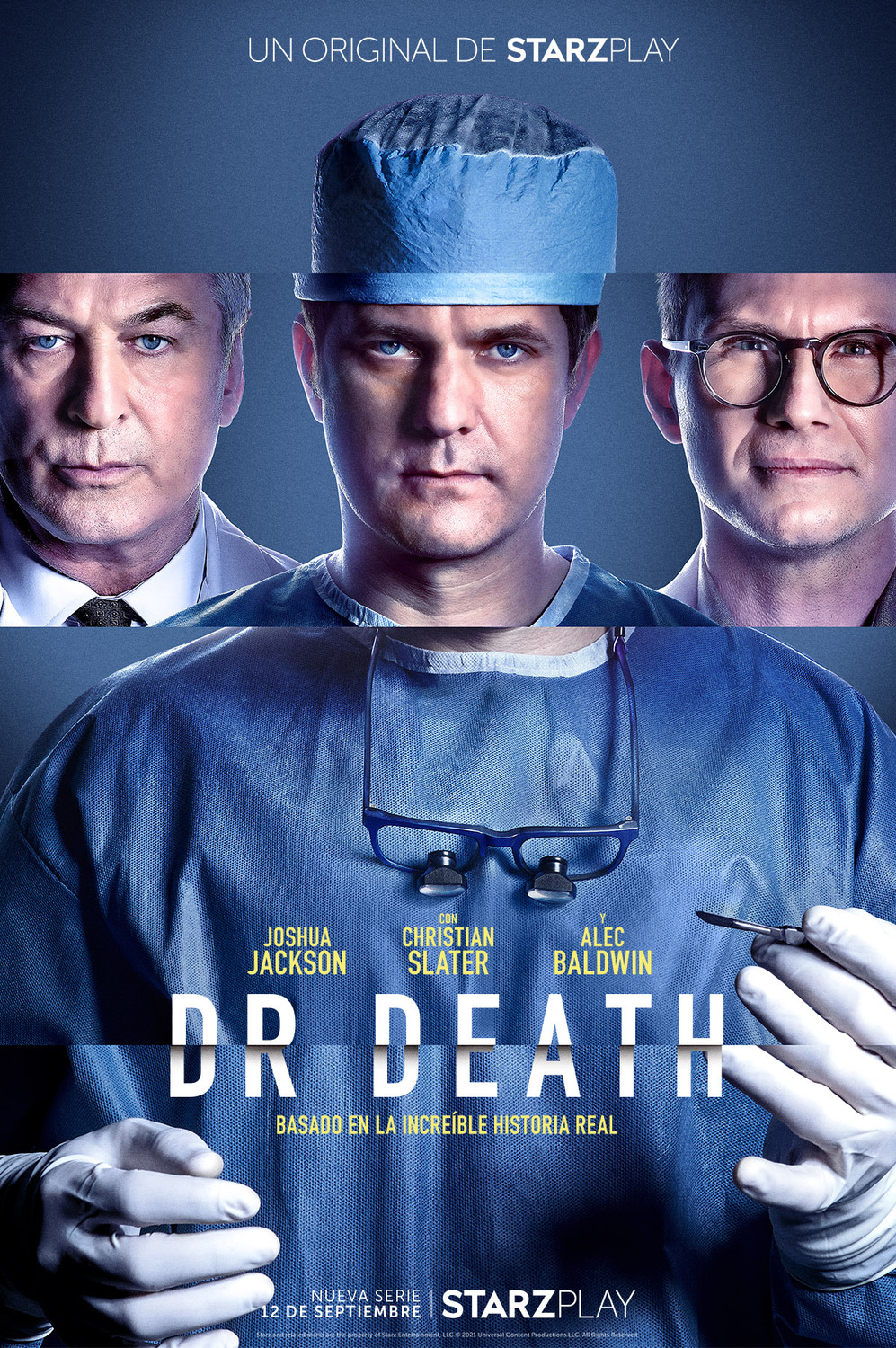The nickname "doctor death" probably conjures up some pretty dark images for you, doesn't it? It's a title that, in a way, just feels wrong when you think about medical professionals who are supposed to heal. Yet, sadly, this chilling moniker became a very real identifier for a former American neurosurgeon whose actions left a trail of immense suffering and, in some cases, even ended lives. It's a story that truly makes you question how such things could possibly happen within a system built on trust and care.
This particular story, as a matter of fact, brings us face-to-face with Christopher Daniel Duntsch, born on April 3, 1971. He was, by all accounts, once a promising medical professional, someone you might have trusted with your very well-being. But his actions, or rather his profound lack of proper medical practice, would lead him down a truly dark path, earning him that grim nickname. It's a tale that, in a way, really highlights the severe consequences when a medical oath is so completely violated.
What you're about to discover is the shocking account of Christopher Duntsch, a person who, as a neurosurgeon, was supposed to mend, but instead caused catastrophic harm. This is the story of how a man, once a rising star in the Dallas medical community, became known as "doctor death," leaving behind a deeply unsettling legacy. You know, it's a story that, quite frankly, just demands attention.
Table of Contents
- The Man Behind the Nickname: Christopher Duntsch's Story
- The Shocking Malpractice: A Trail of Harm
- Uncovering the Horrors: How Dr. Death Was Stopped
- Dr. Death in Pop Culture: True Crime Adaptations
- Frequently Asked Questions About Doctor Death
The Man Behind the Nickname: Christopher Duntsch's Story
Christopher Daniel Duntsch, the individual at the center of this disturbing narrative, was, in some respects, a very typical person, at least on the surface. Born on April 3, 1971, he eventually pursued a career in medicine, specializing in neurosurgery. This field, as you know, requires an incredibly steady hand, a sharp mind, and a deep commitment to patient well-being. It's a role that, quite honestly, carries immense responsibility.
His journey into medicine seemed, in a way, rather ordinary at first. He was, apparently, once seen as a promising talent, someone with a future in a highly respected and demanding profession. However, his actions would ultimately prove to be anything but ordinary, leading to a series of events that are, to be honest, pretty hard to believe. You know, it's a stark reminder that appearances can sometimes be very misleading.
Personal Details and Bio Data
To give you a clearer picture of the person we're discussing, here are some basic details about Christopher Duntsch, the man who would unfortunately become known as "doctor death." This information, in a way, just helps to ground the story.
| Detail | Information |
|---|---|
| Full Name | Christopher Daniel Duntsch |
| Born | April 3, 1971 |
| Profession | Former American Neurosurgeon |
| Nickname | Dr. Death |
| Known For | Gross neurosurgical malpractice, patient injuries, and deaths |
The Shocking Malpractice: A Trail of Harm
The sheer scale of the harm caused by Christopher Duntsch is, quite frankly, astounding. The text tells us there were 33 incidents of gross neurosurgical malpractice attributed to him. That's a very significant number of cases where things went terribly, terribly wrong under his care. It's almost, you know, hard to wrap your head around such a consistent pattern of failure and injury.
His surgical procedures, which are supposed to be moments of precision and healing, instead became opportunities for severe injury. Most of his patients, it seems, suffered greatly. This wasn't just a single mistake or an isolated incident; it was a repeated pattern of deeply concerning behavior that had devastating effects on the people he was supposed to be helping. You know, it really makes you wonder about the circumstances surrounding each one of those incidents.
Operating Under the Influence
One of the most disturbing aspects of Christopher Duntsch's actions was his reported behavior during surgery. He was, apparently, routinely performing these incredibly delicate procedures while under the influence of illicit substances. The text specifically mentions cocaine and LSD. Imagine, if you will, a surgeon, with a scalpel in hand, performing complex brain or spine operations while his mind is clouded by such powerful drugs. It's a thought that, honestly, just sends shivers down your spine.
The use of these substances during surgery is, to be honest, a complete betrayal of every medical principle. It compromises judgment, motor skills, and the ability to focus, all of which are absolutely vital for a neurosurgeon. This fact alone, in a way, begins to explain the horrific outcomes his patients faced. It's just a truly shocking detail to consider.
The Human Cost: Injuries and Fatalities
The consequences of Duntsch's actions were, quite literally, life-altering for many and life-ending for some. The text makes it clear: Christopher Duntsch severely injured most of his patients. This means people were left with debilitating conditions, chronic pain, or permanent disabilities that they didn't have before their interaction with him. It's a very heavy burden for anyone to carry, knowing their health was so carelessly compromised.
And then, there are the most tragic outcomes of all. In two cases, his malpractice led directly to the deaths of his patients. The idea that a medical professional, someone sworn to do no harm, could be responsible for ending lives through their negligence or deliberate actions, is just incredibly difficult to process. The phrase "Plano surgeon Christopher Duntsch left a trail of bodies" is, in a way, a stark and chilling summary of the devastation he caused. You know, it's a very sobering thought to consider the families affected by such profound losses.
Uncovering the Horrors: How Dr. Death Was Stopped
The story of "doctor death" isn't just about the harm he caused; it's also about how his crimes were eventually brought to light and how he was stopped. It's a process that, in some respects, reveals both the resilience of those who sought justice and the concerning cracks within the medical system itself. You know, it's a narrative that, quite frankly, just needs to be told fully.
The uncovering of his actions was, apparently, a complex effort, involving many people who became aware of the deeply troubling pattern of his work. It's a testament to the dedication of those who refused to let his actions go unchallenged. Discover more about patient safety protocols on our site, which are designed to prevent such incidents.
The System's Flaws and Failures
A significant part of the "doctor death" narrative, as highlighted by various media profiles, points to the flawed system that, in a way, allowed Duntsch to continue practicing medicine for as long as he did. How could a neurosurgeon with such a high rate of severe complications and patient harm remain active? This question is, to be honest, a very critical one.
The first season of Peacock's "Dr. Death," based on this true story, focuses heavily on this aspect. It explores the rise and downfall of Duntsch, but it also really looks at the system that, in some respects, failed to intervene quickly enough. There were, apparently, many warning signs and incidents that, perhaps, should have triggered a more immediate response. It's a situation that, quite frankly, just highlights the need for constant vigilance and robust oversight in the medical field. Learn more about medical ethics and accountability by visiting this page.
Bringing Justice to the Victims
Despite the system's initial failures, efforts were made to bring Christopher Duntsch to justice. The text mentions that his crimes were uncovered, leading to his eventual conviction. This process was, as you might imagine, a very long and difficult one for the victims and their families, who had already endured so much. It's a powerful reminder that accountability, in a way, matters deeply.
His actions were so profoundly violative of his oath that he became known as "doctor death," and this recognition, unfortunately, came at a very high cost to his patients. The pursuit of justice for those he injured and killed was, apparently, a relentless endeavor, driven by the desire to prevent future harm and to hold him responsible for the trail of devastation he left behind. You know, it's a story that, in a way, just shows the power of persistence in seeking what's right.
Dr. Death in Pop Culture: True Crime Adaptations
The shocking nature of Christopher Duntsch's story has, in some respects, captured the public's imagination, leading to its adaptation across various true crime platforms. This widespread interest, to be honest, isn't really surprising given the deeply unsettling details of his malpractice. It's a story that, you know, just seems to resonate with people's curiosity about the darker side of human behavior.
The retelling of his tale serves, in a way, multiple purposes. It informs the public about what happened, it honors the experiences of the victims, and it also, perhaps, encourages a closer look at the safeguards within the medical system. It's a narrative that, quite frankly, just demands to be heard.
The Peacock Series and Beyond
The story of Christopher Duntsch has been brought to a wider audience through several media productions. The text specifically mentions "Dr. Death," a Peacock original TV series based on his terrifying true story. This series, in a way, really brought the details of his rise and downfall, and the systemic issues, into living rooms everywhere. It's a powerful way to convey such a complex and disturbing narrative.
Beyond Peacock, his tale has also been profiled on other well-known true crime programs. Oxygen's "License to Kill" and CNBC's "American Greed" have both, apparently, explored the case of Christopher Duntsch, aptly dubbed "Dr. Death." These adaptations, you know, just show the enduring fascination with stories where trust is so profoundly broken. It's a testament to the impact his actions had.
Why These Stories Matter
You might wonder why such grim stories, like that of "doctor death," are so often retold and consumed by the public. One reason, perhaps, is that they serve as a very stark reminder of the human element in professions where precision and ethics are absolutely paramount. They highlight, in a way, the critical importance of oversight and accountability in fields that directly affect people's lives and well-being. It's a very serious consideration.
These true crime adaptations also, quite frankly, provide a platform for the victims' stories to be heard, ensuring that their suffering is not forgotten. They can also, in some respects, spark important conversations about patient safety, medical licensing, and the processes in place to prevent such horrific incidents from ever happening again. It's a way to, you know, learn from the past and hopefully prevent future tragedies. For more information on medical ethics and patient safety, you could consult reputable medical journals or organizations specializing in healthcare quality, for instance, the National Library of Medicine.
Frequently Asked Questions About Doctor Death
Given the shocking nature of Christopher Duntsch's story, it's understandable that many people have questions. Here are some common inquiries about "doctor death" and the events surrounding his notorious career.
How many patients did Christopher Duntsch injure or kill?
According to the provided information, Christopher Duntsch was responsible for 33 incidents of gross neurosurgical malpractice. He severely injured most of his patients, and in two specific cases, his actions led directly to their deaths. So, it's a very high number of people who experienced harm.
What substances was Dr. Christopher Duntsch using during surgery?
The text states that Dr. Christopher Duntsch was routinely performing surgery while under the influence of cocaine and LSD. This is, to be honest, a truly alarming detail that really underscores the recklessness of his behavior and, in a way, explains the devastating outcomes for his patients.
How was Dr. Christopher Duntsch's medical malpractice uncovered?
While the provided text doesn't go into extensive detail about the exact process, it does mention that his crimes were uncovered. This implies that a series of events, likely involving other medical professionals, patients, or legal actions, brought his pattern of gross malpractice to light. The various media adaptations, like the Peacock series, also delve into how the flawed system eventually allowed his actions to be exposed and addressed. It was, apparently, a long and arduous process.
The story of "doctor death" is, in some respects, a very stark and sobering reminder of the trust we place in medical professionals and the profound consequences when that trust is so completely violated. Christopher Duntsch's actions left an undeniable trail of suffering and loss, a truly chilling tale of a neurosurgeon who, in a way, went from a promising career to a convicted criminal. His story, as a matter of fact, continues to serve as a powerful cautionary tale, urging us to remain vigilant about patient safety and the systems designed to protect us. It's a narrative that, quite frankly, just stays with you.



Detail Author:
- Name : Heath Dicki
- Username : bridie.gerlach
- Email : lenna29@williamson.com
- Birthdate : 2007-05-03
- Address : 118 Marisol Mall Apt. 957 New Anthonyborough, OR 67427-9147
- Phone : +1-631-377-0505
- Company : Klein Group
- Job : Dredge Operator
- Bio : Sed et facere illo nihil est. Id atque quia sed quaerat. Blanditiis saepe vitae cum doloremque nihil eum quo. Velit dolor ratione maiores molestias.
Socials
linkedin:
- url : https://linkedin.com/in/jerryvandervort
- username : jerryvandervort
- bio : Qui quibusdam nam ipsam temporibus consequatur.
- followers : 657
- following : 1282
twitter:
- url : https://twitter.com/jerryvandervort
- username : jerryvandervort
- bio : Commodi suscipit quod voluptatum cumque. Quia quia consequuntur aperiam quia. Quisquam aperiam quod ab vitae. Est voluptatem voluptas placeat minima sit id.
- followers : 3098
- following : 2926